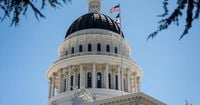Californians are no strangers to political spectacle, but the November 4, 2025 special election stands out as a particularly charged moment in the state’s long history of ballot box battles. This time, the controversy swirls around Proposition 50—a measure that would grant state lawmakers the power to redraw California’s congressional districts, a move that could tip the balance of power in Washington and reshape the state’s political landscape for years to come.
On October 9, millions of voters across California received a one-page ballot in the mail, according to CBS News and Los Angeles Times reporting. The ballot’s centerpiece: Proposition 50, a proposal backed fiercely by Governor Gavin Newsom and Democratic leaders in Sacramento. Their goal, as both outlets note, is clear—secure more Democratic seats in Congress by redrawing district lines, a direct response to Texas Republicans’ recent redistricting maneuvers that netted the GOP five additional House seats.
The stakes are enormous. If Prop. 50 passes, Democrats could see their share of California’s 52 congressional seats jump from 43 to 47, according to a new analysis by Eric McGhee of the Public Policy Institute of California. That’s not just a local shift—it’s a potential game-changer for national politics, especially as both parties gear up for the 2026 midterms. The hope among Democrats is that California’s gains will offset expected losses in Texas, where Republican-led redistricting, encouraged by former President Donald Trump, has already tilted the map in their favor. As Los Angeles Times points out, “Democrats hope for a five-seat gain to offset the assumed five-seat loss in Texas.”
But the move has sparked a firestorm of criticism, not just from Republicans but from good government advocates and some voters who see it as a betrayal of the state’s independent redistricting process. Four years ago, an independent commission painstakingly drew the current district lines after months of public hearings, aiming to take partisan politics out of the process. Now, Prop. 50 would set those efforts aside—at least temporarily—returning the power to politicians in Sacramento.
The financial cost is nothing to sneeze at, either. The special election itself is expected to cost taxpayers nearly $300 million, a hefty sum at a time when the state budget is already billions of dollars in the red. Critics argue that this violates, at least in spirit, the state constitution’s prohibition against “gifts of public funds.” As one Los Angeles Times columnist put it, “Prop. 50, if enacted, is not only a gift to the Democratic Party… it also blatantly serves Newsom’s obvious intention to run for president in 2028.”
Yet, the political gamesmanship is hardly one-sided. Former President Trump, who continues to claim without evidence that the 2020 election was rigged, has openly called on Republican-led states to redraw their own districts to shore up GOP control of the House. Texas Republicans have already obliged, and officials in at least six other red states are reportedly working on similar plans. The result, as the Los Angeles Times observes, is a “tit-for-tat duel” that symbolizes the “perpetual power struggles that have replaced governance in the nation’s political system.”
With so much at stake, it’s no surprise that Prop. 50 has become a litmus test for candidates vying to succeed Newsom as governor in 2026. CBS News California Investigates correspondent Julie Watts recently sat down with the 11 major candidates—seven Democrats, three Republicans, and one Green Party contender—to press them on their positions. The interviews, published October 8, 2025, revealed sharp partisan divides and some unexpected tensions.
Most Democratic hopefuls, including former Attorney General Xavier Becerra, former Assembly Majority Leader Ian Calderon, and consumer protection attorney Katie Porter, voiced support for Prop. 50. Porter, however, bristled at follow-up questions about the measure, even threatening to walk out of her interview before ultimately staying and answering. Becerra credited Newsom for strengthening the state’s economy, while Calderon praised efforts to address the housing crisis. Porter singled out Newsom’s universal meals program for schools as a highlight of his tenure but said she would focus on bringing down housing costs if elected.
Republican candidates, on the other hand, were scathing in their criticism. Riverside County Sheriff Chad Bianco accused Newsom of “acting like a Republican” in what he described as a transparent bid for the presidency, but said, “I couldn’t think of a single thing the state Legislature has done right during my seven years as sheriff.” Business owner Leo Zacky echoed the sentiment, saying he’s running to “bring common sense solutions to save my home state” and couldn’t identify a single legislative accomplishment under Newsom. Steve Hilton, a public policy expert, said he agreed with Newsom on limiting smartphone use in schools but argued the state’s rising housing costs are driving residents away.
The Green Party’s Butch Ware, a University of California professor, criticized Newsom’s response to immigration raids and the homelessness crisis, while also taking issue with the governor’s use of social media to challenge the Trump administration. Yet, even he acknowledged Newsom’s willingness to fight back as a positive trait.
Beyond Prop. 50, the candidates debated a range of urgent issues: crime, gas prices, homelessness, affordable housing, and insurance. The CBS News series promises to dig deeper into these topics in the coming weeks, giving voters a chance to hear directly from those who hope to lead the nation’s most populous state.
Meanwhile, the outcome of Prop. 50 remains uncertain, though early polling suggests it’s likely to pass. A survey of 1,000 likely voters by research firm co/efficient found 54% in favor, 36% opposed, and 10% undecided as of early October—a reflection, perhaps, of California’s reliably blue voting history and deep-seated antipathy toward Trump-era politics.
Still, there are nagging questions about the long-term consequences of such a move. If Prop. 50 passes, the new districts would remain in place for three election cycles, after which the independent commission would regain control following the 2030 census. But by then, California is expected to lose four congressional seats due to sluggish population growth, and the so-called “Prop. 50 babies”—the new Democratic members elected under the revised map—may not be eager to relinquish their seats. As the Los Angeles Times notes, “the next governor and legislators would be under heavy pressure to maintain Democratic dominance… by retaining gerrymander power.”
In the end, Prop. 50 is more than just a technical tweak to district boundaries; it’s a flashpoint in a broader national struggle over who gets to draw the lines—and who gets to call the shots. With both parties locked in a high-stakes chess match, the outcome in California could reverberate far beyond the state’s borders, shaping the contours of American democracy for years to come.




